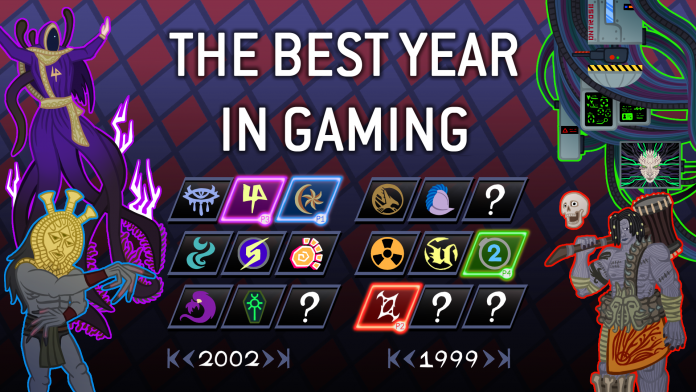Last year’s stacked lineup of games for the Game Awards had us thinking: What was the best year in gaming? As part of our series on determining gaming’s best year, we’re putting together an article on each year, charting the major releases and developments of the year, and talking about both their impact and what made them great.

The Year: 2020
Okay, let’s get something out of the way immediately: This is about the best year in gaming, and that’s kind of – but not entirely – independent of other things that were going on at the time. And while 2020 was a historically bad year in a lot of ways, it was also pretty good for gaming in many ways. Well, certain types of gaming, anyways. Alright, let’s talk about COVID.
The first identified outbreak of COVID-19 was in December 2019 but by March 2020 had spread to the point of becoming a global pandemic, leading to a shut-down of global travel, millions of deaths, and an economic disruption that would lead to a global recession, including massive supply chain disruptions and shortages. Body counts mounted throughout the year, and thanks to some hard work around the globe in what amounts to one of the most impressive scientific feats in human history, by the end of the year we had multiple COVID vaccines in testing and ready to be distributed in early 2021. As of this writing anyone old enough to be reading this is old enough to remember living through the pandemic, so I’ll go light on those particular details. A lot of what we’re going to talk about in the trends section of this article is heavily related to or influenced by COVID.
Workforce and Supply Chain Disruptions Cause Delays
One of the major preventative measures for COVID was simply telling people to stay at home and indoors to reduce the risk of infection and transmission. This made going into the office a pretty bad idea overall and both the US and Japanese governments encouraged teleworking. For industries where teleworking was not possible, such as manufacturing, the options were less appealing, and manufacturing output for computer and electronic parts fell substantially as labor shortages led to challenges with factory operation and supply chain slowdowns led to a shortage in necessary components.
The most important of these to gaming was the global chip shortage, a worldwide shortage in computer chips caused by COVID supply chain disruptions which happened at the same time as a 13% increase in global demand for PCs and related devices as consumers were being asked to do more teleworking. This was further exacerbated by a trade war between the US and China in which the US Department of Commerce imposed restrictions on China’s largest chip manufacturer, and by an increase in demand for GPUs as morons determined to mine cryptocurrency started snatching them up. And on top of all that, a mix of severe weather and facility fires plus the Russian invasion of Ukraine (both countries are major exporters of metals and gasses used in chip manufacture) led to a perfect storm of problems which would lead to a three-year shortage on computer chips affecting more than a hundred industries globally.
These shortages had several major impacts on the gaming industry, leaving ripples which would be felt in the following years.
- First, many games were delayed – the pandemic pushed a large number of games out of 2021 and into 2022 and 2023, right as two new consoles were launching. This made the normally weak period following a new console launch even weaker, as players would wait a year or more for the Xbox Series X and PlayStation 5 to actually accrue libraries that were worth buying a console for. That largely didn’t matter however, as you couldn’t buy one anyways.
- The cost for key gaming components – most notably video cards – skyrocketed, making PC gaming more expensive and slowing production on consoles as the production prices increased. If you wanted one of the new consoles in 2020 or early 2021, chances are you’d have to wait, and the shortages continued through most of 2022.
Staying Home + Cash Infusion = More Video Games
You want to compound the frustration one step further? In March, 2020 the United states passed the Coronavirus Aid, Relief, and Economic Security Act (CARES), which paid out a one-time, direct cash payment of $1,200 per person and $500 per child. Employment rates at the time had spiked at nearly 15%, and a bunch of Americans blew the money on video games – console purchases skyrocketed in April 2020, spiking 36% as people stuck at home with cash in their pockets looked to a new console as a way to spend their free time.
So while Among Us technically released in 2018, it really hit its heyday in 2020 thanks to the Pandemic and a release on the Nintendo Switch. The game’s premise of working together to sniff out an alien imposter played well with the need to stay home and be paranoid.
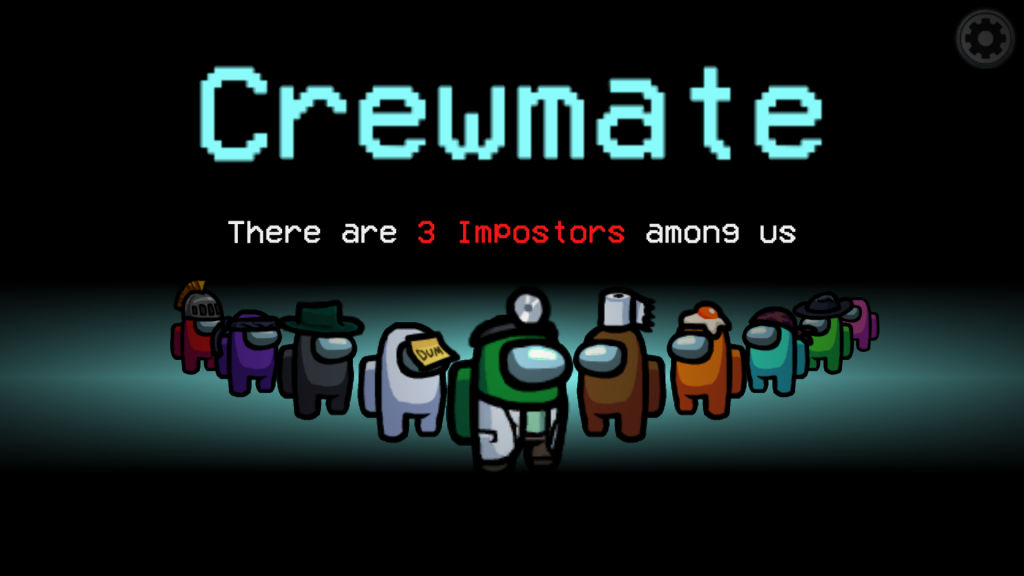
Online Gaming Explodes
For people stuck at home during the pandemic, online play became a great way to stay connected with friends and have social experiences. Usage of online services like Xbox Live and Steam surged in March 2020, setting records for concurrent online users. Games like Fall Guys and Among Us became major hits during that time, and the player for Jackbox party games doubled from 2019 to 2020. For three quarters of Americans, time spent gaming increased. Maybe the real pandemic was the friends we made along the way.
Wait. Wait, no, it was the virus that killed millions of people. I’m sorry. I’m changing it.

The Ninth Generation of Consoles Arrives with a Whimper
Microsoft and Sony, undeterred by a global pandemic, released their ninth generation consoles, the Xbox Series X and PlayStation 5 in November 2020, both retailing for $499 USD in their basic configurations. The most visually powerful consoles ever released, they both sold out and then immediately suffered from a supply shortage due to the global chip shortage. On top of that, the actual launch titles for the consoles were pretty bad, including a mix of remakes and games which were just updated versions of prior generation games, such as Marvel’s Spider-Man Remastered and Gears 5. It’s probably the weakest console launch in gaming history, but it kind of didn’t matter because you couldn’t buy either console anyways.
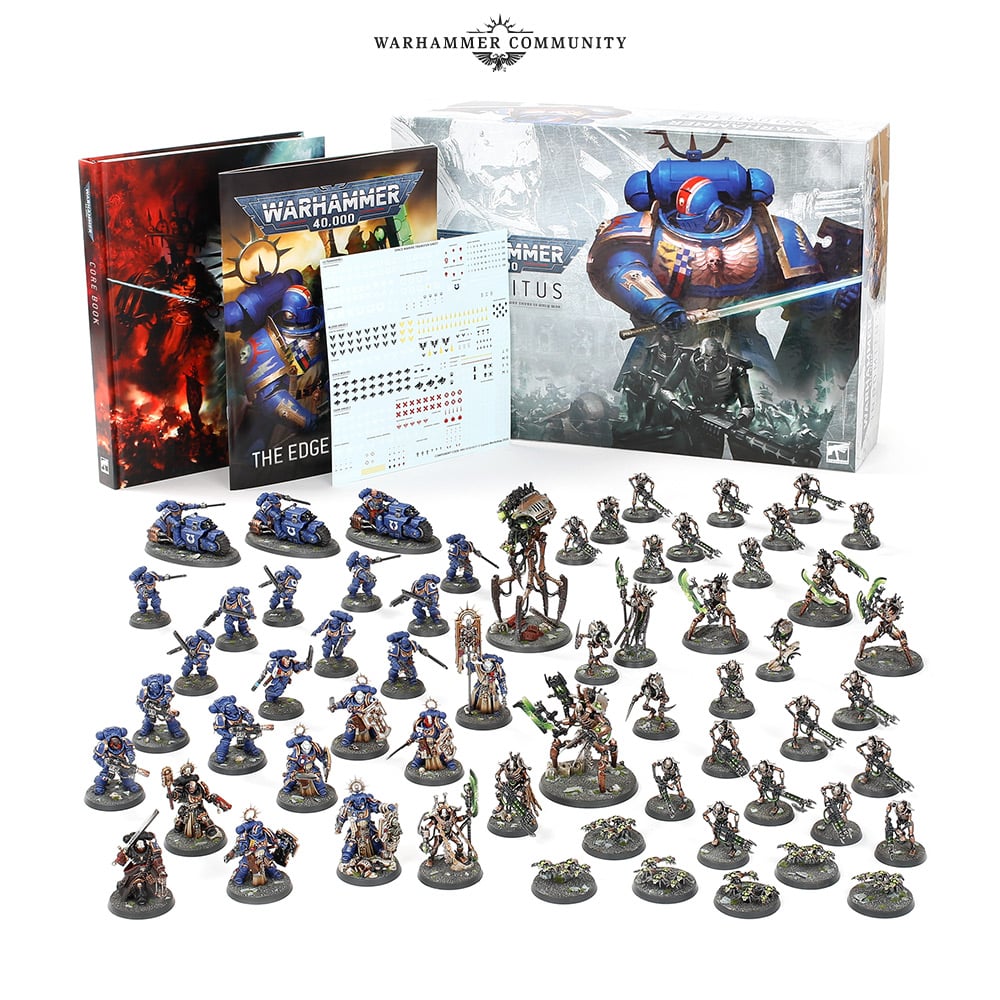
Warhammer 40,000: Ninth Edition
Also pushing along completely undeterred by players’ inability to meet for in-person games, Games Workshop launched the ninth edition of Warhammer 40,000 in the summer of 2020, giving us the most streamlined version of the game yet. Ninth edition introduced actions to the game and refined the army building process, shifting things away from massive pools of command points. As a framework, it was the best edition of Warhammer 40,000 yet, and in 2020 things wouldn’t go off the rails balance-wise for another nine months.
The biggest change in ninth edition was streamlining missions to create a single mission type – whether you were casual or competitive, you were largely playing the same game in ninth edition, choosing secondary objectives to go with progressively scoring primary objectives. Ninth edition also added Crusade to the game, giving players who wanted a more RPG-like experience a way to play longer-form narratives, improving characters and amassing relics and upgrades over time, with asymmetric missions which allowed for some of the game’s wilder rules.

Pandemic Legacy Season 0
The third Pandemic legacy game, this poorly-timed but still worth playing prequel keeps some of the best aspects of Pandemic while also letting players work together during the Cold War to discover the origin of the virus they’re trying to stop in later games.
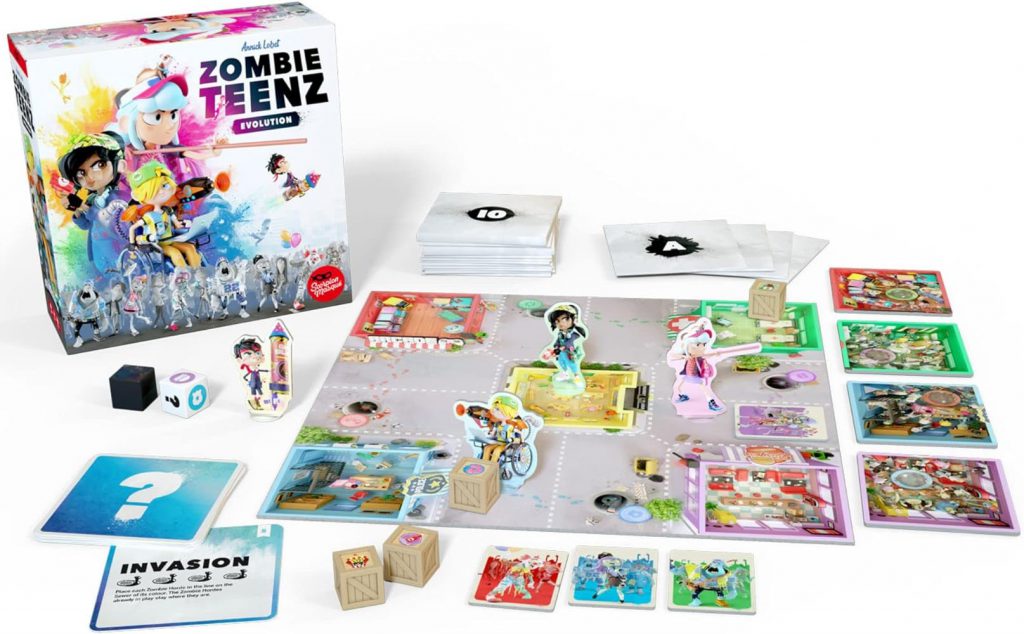
Zombie Teenz Evolution
This legacy zombie fighting game lets up to four players take on the role of teens fighting off a zombie invasion of their neighborhood, clearing areas and using an expanding repertoire of special powers to work together to defeat the oncoming hordes. It’s a solid game, very accessible for younger kids, and if you’ve never played a legacy game, it’s a great, simple introduction to the concept.
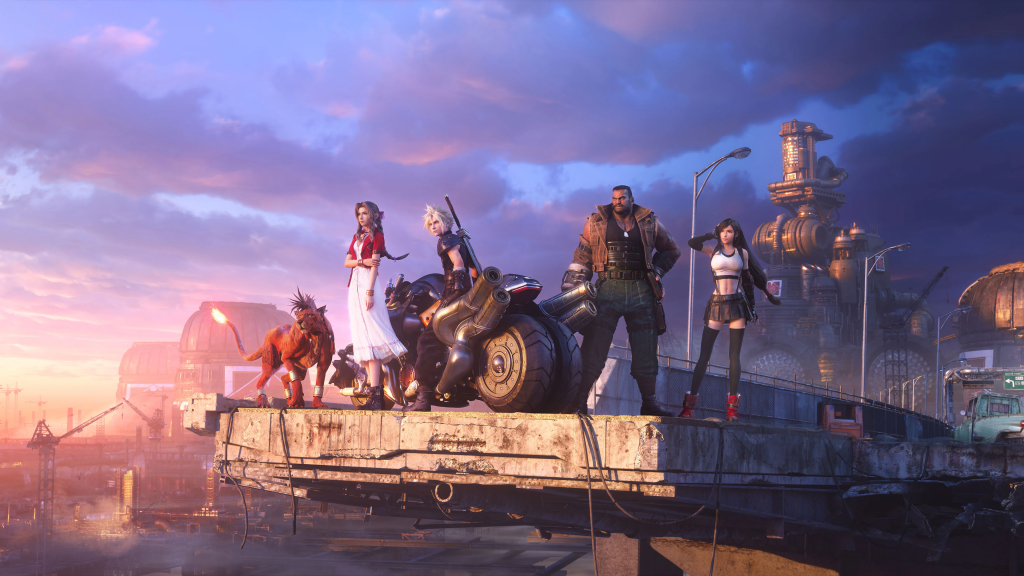
Final Fantasy VII Remake
Sony dropped one of the biggest announcements of E3 2015 with the news they were working on a multi-part remake of Final Fantasy VII. Then a full five years later, the game actually released in April 2020 as one of the most anticipated releases of all time. The remake is actually the first part in a planned trilogy, covering the events of Cloud and his ecoterrorist pals as they fight back against the villainous Shinra corporation and eventually escape the city of Midgar. Though it’s clear from early on that FF7 Remake isn’t content to be a mere remake, instead acting as a kind of sequel to the original game and adding a meta-plot around multiple universes (those were all the rage in 2020) and Sephiroth’s plans to change things. The remake changes up combat to be more of an action RPG but captures the feel of Midgar and its slums wonderfully, and manages to thread the needle updating some of the original’s more questionable decisions. The game slips at bit at the finish line but it’s a phenomenal work that presented a whole new story and questions which would keep fans hanging until the second episode… another four years later.
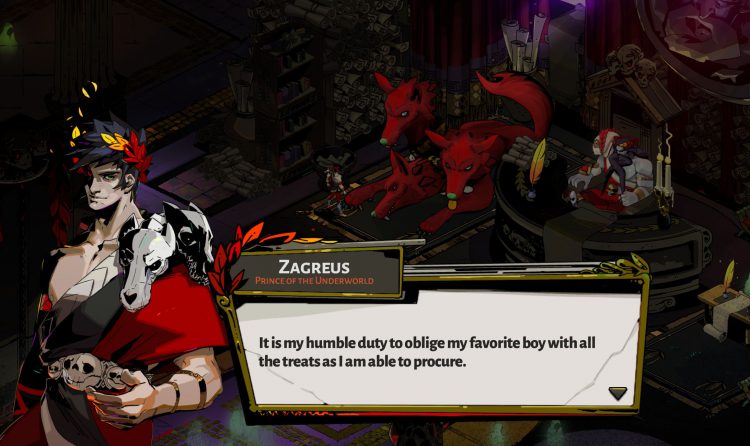
Hades
The best game of 2020 was a roguelike from Supergiant Games named Hades. Players take on the role of Zagreus, god of blood and son of the titular god of the underworld, embarking on a quest to escape the underworld, collecting weapon upgrades and boons from various members of the Greek Pantheon in the process. It’s a difficult game – you will die many times – but the brilliance of Hades is in how it turns those deaths into part of the game’s core mechanics. Zagreus dies over and over and that’s part of the plot, and each time you return to the beginning things move forward, all the while you accrue new power-ups and bonuses which you carry with you on the next attempt. So even when you’re on your thirtieth attempt, you never feel that same level of frustration which can set in quickly with soulslike games – you’re supposed to die, and the character is as frustrated as you, but you’ve also moved things forward. Add to all of this some great writing and dialogue and you have an endlessly replayable game that keeps you going even after you’ve beaten it five or six times.
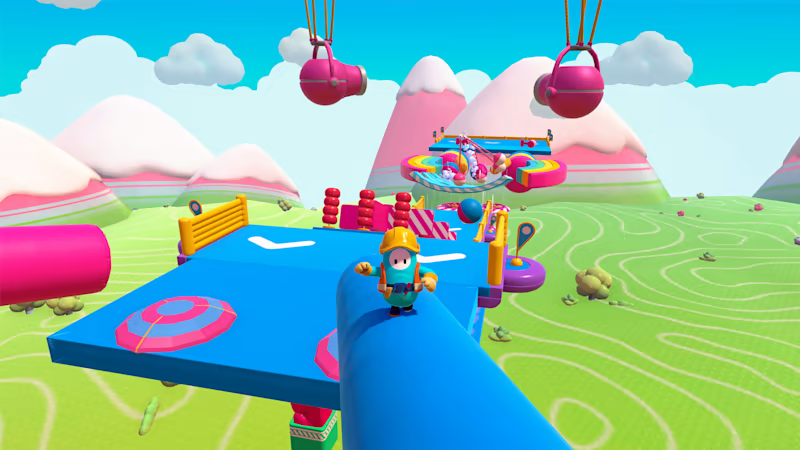
Fall Guys
The other big party game of 2020 – and one which actually first released in 2020 – Mediatonic’s Fall Guys lets up to 40 players compete against each other in rounds playing a variety of winner-take-all minigames which wouldn’t have been out of place in a Mario Party game. The game was a fun way to get all your friends into one game online and was one of the games to most benefit from the pandemic.
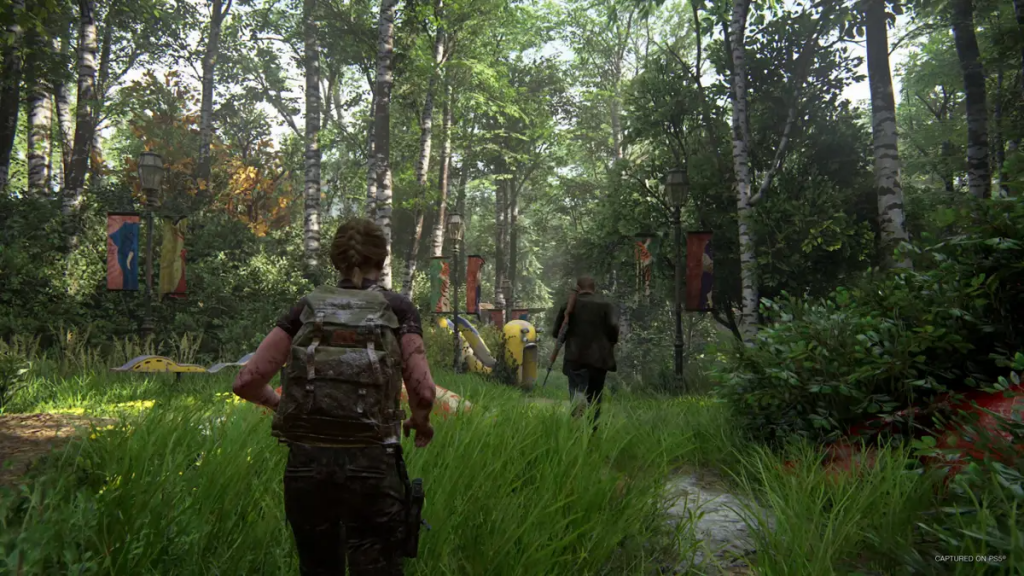
The Last of Us Part II
Part action-adventure game, part survival horror, part misery simulator, part movie, Naughty Dog’s The Last of Us Part II picks up five years after game leaves off, following an older Ellie as she sets out to avenge the murder of Joel, perpetuating a cycle of violence started in the first game. TLOU Part II takes the art of video game storytelling to new levels, with great acting, interesting level choices, and fantastic sound design.
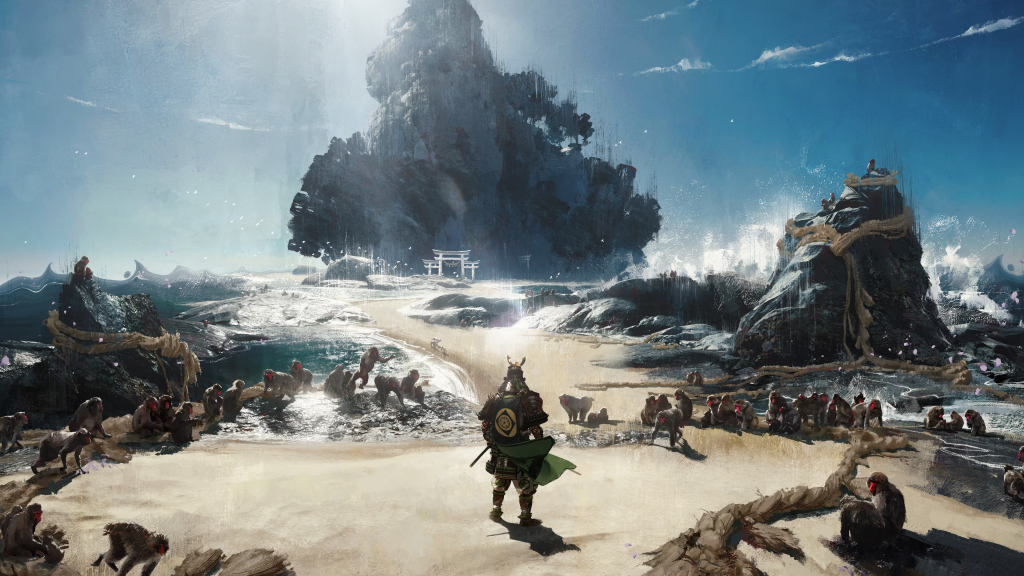
Ghost of Tsushima
For players who wanted samurai action drama without punishing difficulty, Sucker Punch Productions’ Ghost of Tsushima was a welcome alternative to Sekiro. Players take the role of samurai Jin Sakai in his attempt to protect Tsushima Island from Mongol invasion. Although ostensibly a samurai tale, Ghost of Tsushima places a ton of emphasis on stealth, giving players a variety of tools and choice when it comes to sneaking around and taking out enemies in its large open world. Add in a compelling, well-told story and you’ve got yourself one of the year’s best games.

Animal Crossing: New Horizons
Another game which exploded in popularity during the pandemic, Animal Crossing: New Horizons for the Nintendo Switch offered players a comforting, stress-free experience to chill out with during some extremely stressful times. It’s an Animal Crossing game through and through, with all of the great social mechanics and house building players had come to expect, including relationships with other characters and terraforming the area around them. Pandemic aside, it’s the best game in the Animal Crossing series, and that’s noteworthy.
Doom Eternal
Id Software’s sequel to the 2016 reboot of Doom, Doom Eternal puts you on another mission to fight off the hordes of hell, smashing through levels, pushing forward through enemies with the Super Shotgun and its grappling hook attachment. Doom Eternal is just great, frenetic fun in an FPS package. There’s more story in the game than its predecessor, if you’re into that sort of thing, and if not, there’s just a rousing good time to be had.
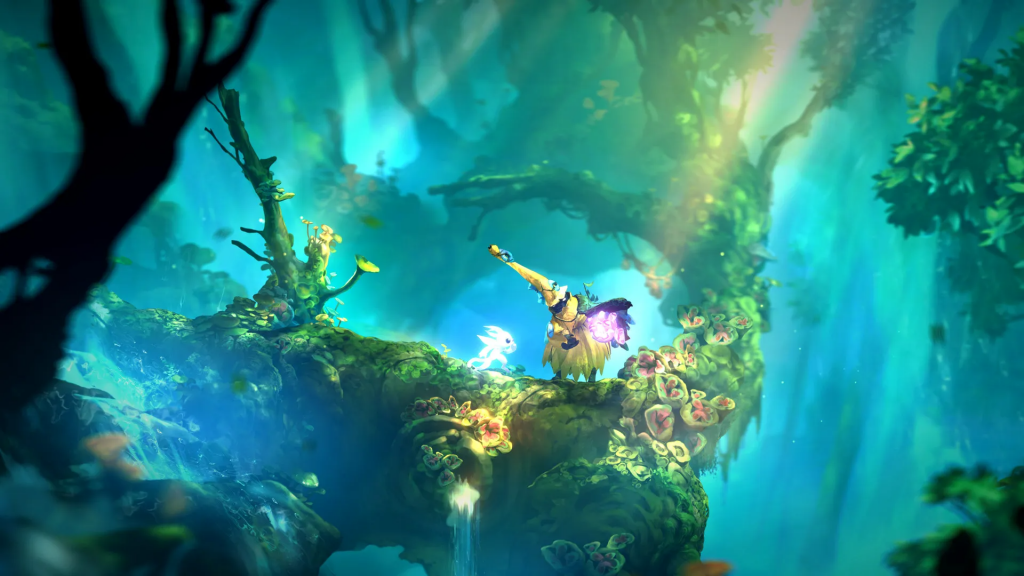
Ori and the Will of the Wisps
Moon Studios’ sequel to their 2015 hit, Ori and the Will of the Wisps builds on the world and story of that original game to complete Ori’s story. It’s a lovely game with excellent game balance, beautiful art, and outstanding music and sound design. And, like the original, manages to tug on your heartstrings more than a little. Ori builds on its predecessor by giving you a new land to explore that’s much less lonely, filled with more interaction and a story that’s told a little less visually. The tradeoff works pretty well.
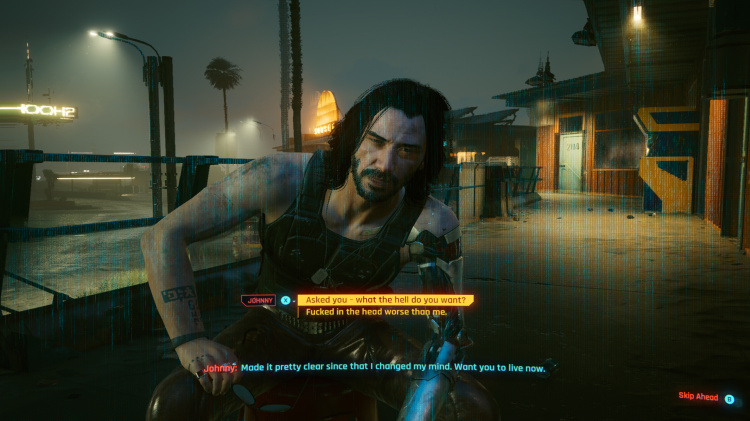
Cyberpunk 2077
Cyberpunk 2077 could never live up to the impossible amount of hype associated with it, especially not after a particularly buggy, performance issue-ridden launch. But behind all of that was a solid, if flawed game letting players explore a dystopian cyberpunk capitalist hellscape guided by the specter of Keanu Reeves. The game was far closer to an 8/10 on launch than reviews would have you believe, and even playing this version it’s easy to see how, with a few updates in later years, it would become more of the game that was promised.
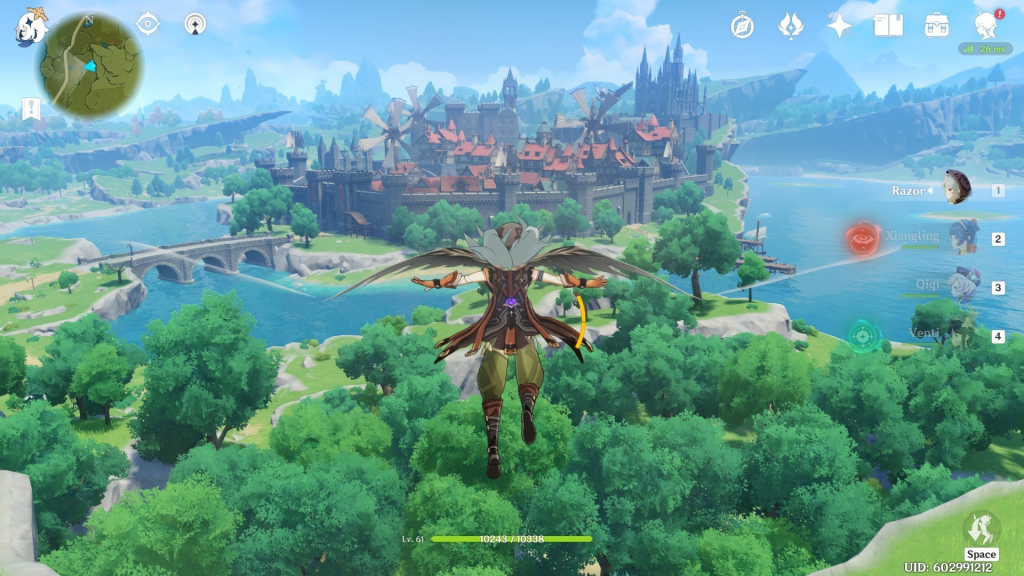
Genshin Impact
Chinese developer miHoYo released this action RPG with heavy gacha mechanics in September 2020, letting players traverse a massive, open fantasy world with a party of unlockable characters. As a game, Genshin Impact is a weird one – there’s definitely a fun gameplay loop buried in there somewhere – but the game’s monetization system makes the endgame a predatory slog designed to squeeze every penny out of its players. The game might legitimately be an all-timer if it wasn’t free-to-play, but even with that, the game has become a massive success, with more than 23 million downloads a week after its release. The game currently has more than 65 million monthly players, and it’s the most profitable mobile game in the world right now. It’s still an extremely popular game, particularly in China, Japan, and South Korea.

Resident Evil 3 Remake
Capcom followed up the Resident Evil 2 Remake with a remake of the third game in the series, following Jill Valentine’s attempts to escape before the US government blows everything up in an effort to stop the zombie apocalypse. The RE3 remake improves the game in many of the same ways the prior remake did for its namesake, and delivers an outstanding survival horror game. It’s not as good as the prior remake, but then it also had worse source material to work with. As-is, it makes for a compelling combined story with its predecessor.
Why It Was the Best Year in Gaming
One of the biggest travesties of 2020 is that it was a phenomenal year for board games, and a bunch of games released in 2019 and 2020 which deserved more support never got it because people either weren’t able to get the games or their groups weren’t meeting. Stellar games like Marvel United, Calico, Ride the Rails, Dune Imperium, Barrage, and Unmatched deserved much better receptions than they got. Likewise, Warhammer 40,000’s ninth edition gave us the best edition of the game yet – and the one that would see a massive increase in competitive and event play – but wouldn’t really see that happen for another year after its release.
On the video game side, things were a bit quieter. Final Fantasy VII Remake, The Last of Us Part II, and Cyberpunk 2077 were some of the year’s most anticipated games, but the best game of the year was a roguelike which came from out of nowhere. Two new consoles released, but neither had much in the way of games. There’s plenty to like about 2020 in terms of the titles released, but it’s still largely a transition year between console generations and that hurts it.
Oh, also the global pandemic. That hurts it too, I guess.
This article is part of a larger series on the best year in gaming. For more years, click this link. Have any questions or feedback? Drop us a note in the comments below or email us at contact@goonhammer.com.
